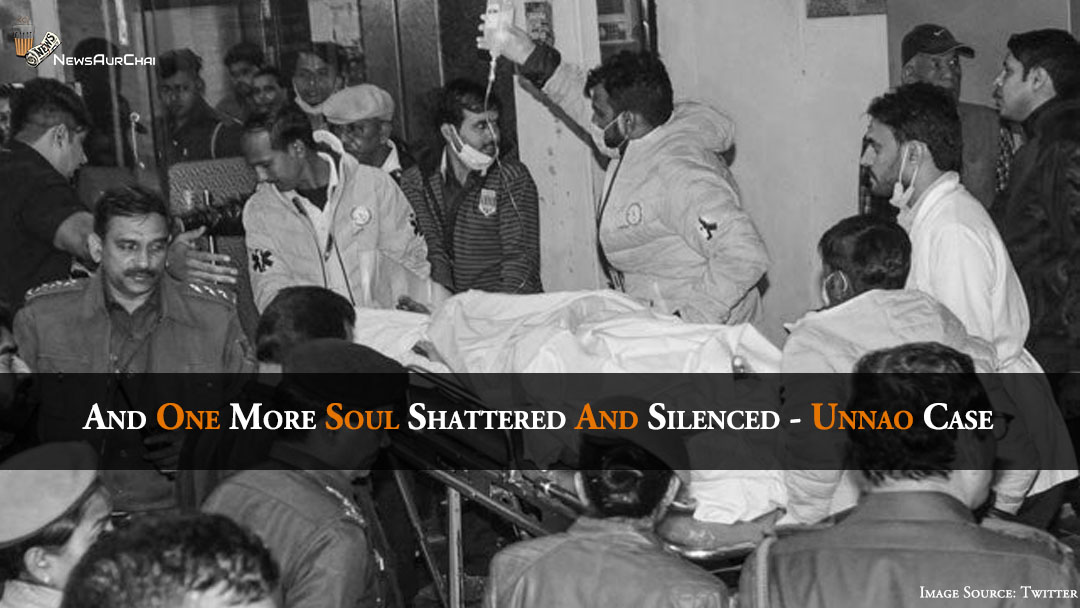
One more voice gets broken, one more life was taken, one more girl became a victim, got burnt and then left to die. What’s the big deal in it, right? What’s the big deal because it doesn’t bother our loving society, incredible India and the Avatar politicians. No judgement came, no police came to rescue, no judgemental aunty and uncle of society cried. No one did anything; who suffered? The girl, her family and her life. We never suffered, we only do candle marches, half of the year we spent on political news and in the week whenever this type of cases happens suddenly the inner poor, humanity driven and being human soul of every individual wakes up and start walking with a candle in their hands, starts typing on social media making hashtags trend.
A week wasn’t over, and another heartbreaking news came out that the 23-year-old Unnao rape survivor, was set on fire by five persons on December 5, is no more. She is no more to retaliate, to speak about what she suffered, to show the nation the breathtaking incidents that happened to her, to question every judiciary which isn’t able to provide her justice but she is no more. No questions will be there; candle marches will be off the tracks now back to the normal life of breathing in and breathing out.
When she was admitted to a hospital in Safdarjung in capital, there was a hope of her survival but on December 6, Dr Shalabh Kumar, HOD (Burns and Plastic), Safdarjung Hospital, said, “She suffered cardiac arrest at 11.10 p.m. We tried to resuscitate her, but she could not survive, and at 11.40 p.m. she died.”
Dr Kumar said that petrol had been used by the assailants to set her on fire and as a result, she suffered 90% burns. The woman’s mother, sister and brother were in the hospital and have been informed, he added.
During the treatment, she told doctors at Safdurjung repeatedly not to let the accused go free. She asked the doctors if she would make it out alive and pleaded with them, “Save me…I want to live.”
Medical Superintendent of the hospital, Dr Sunil Gupta, said, “She was conscious when she was brought here last night at 8 p.m. and was speaking, though very feebly.”
The body was handed over to her relatives after the autopsy, which was held on Saturday under Dr M.K Wahi, Head of Department of Forensic unit. Her post mortem report says that extensive burn injuries is the reason for Unnao victims death.
The hospital had set up a dedicated ICU for the patient, and a team of doctors was constantly monitoring her health condition, he added.
Yes, she wanted to live to be the voice of thousands who suffered and to save the future thousands who can be a victim, but now she is no more, neither society nor police rescued her. The question now arises is that why the police weren’t with her as she was a witness and victim as well? If the police were there, then what actually they were doing planning another encounter or what? What is the judiciary doing in it?
So many questions and loopholes, but the biggest question of all is who, when and how that need to be answered. Will Unnao case truth ever come out?





